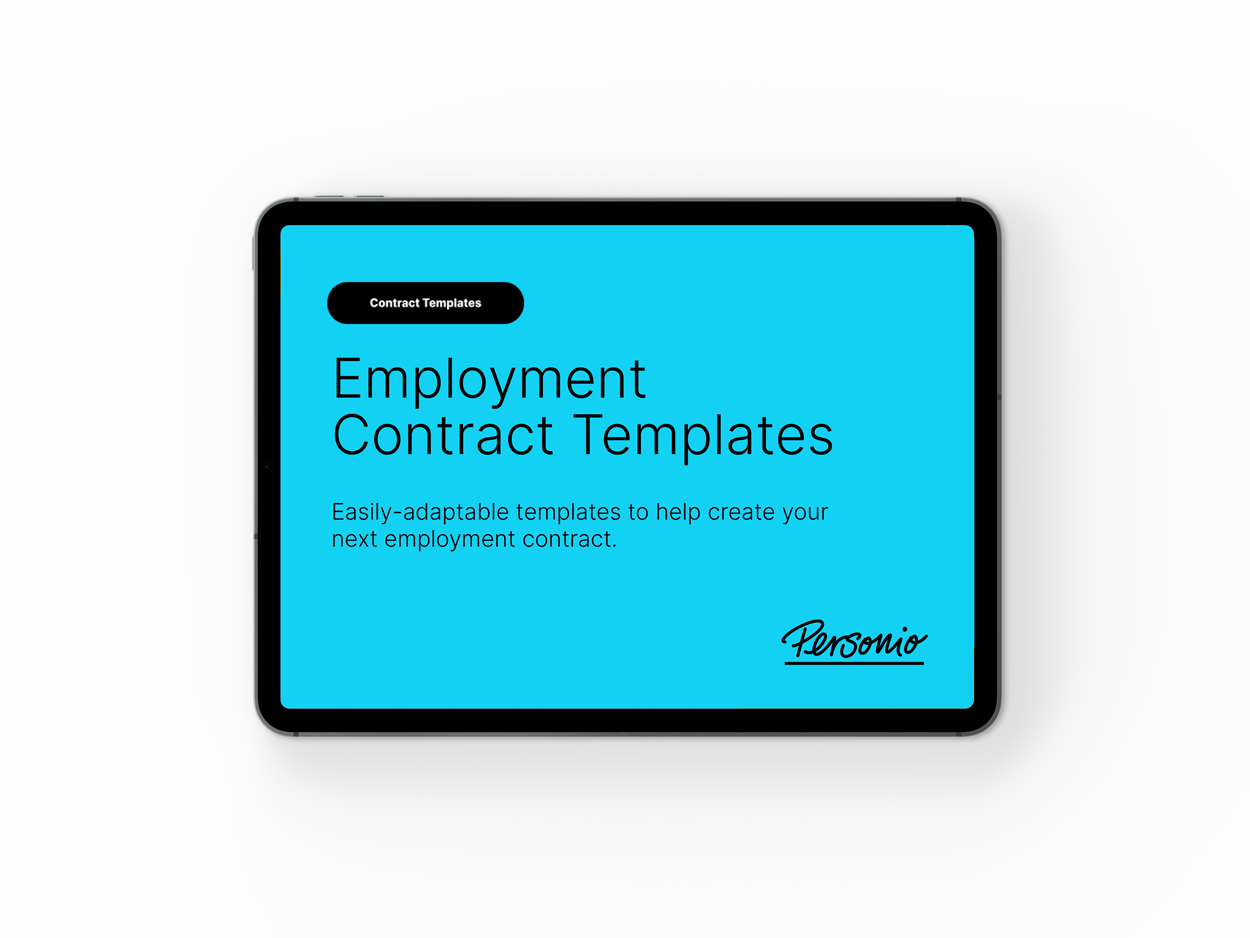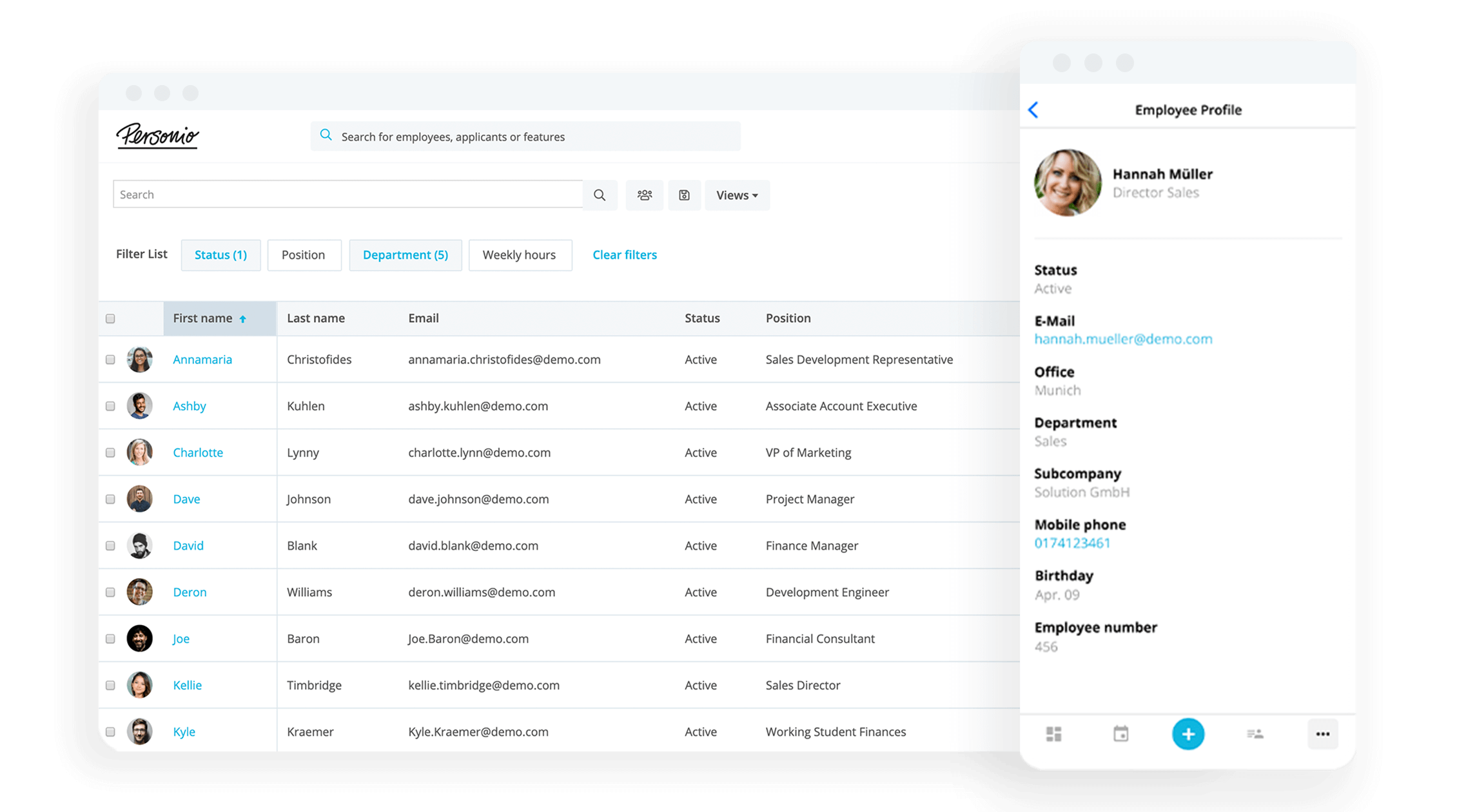The Intricacies of Fixed-Term Employment Contracts
With a fixed-term contract, you can secure the best talent out there during times when you need it most. However, there are many things that employers should know and pay attention to when hiring employees on fixed-term contracts.
Pen your next employment contract with our helpful selection of templates.Contents
- 1What is a Fixed-Term Contract?
- 2Why Use A Fixed-Term Contract?
- 3Can Fixed-Term Contracts Become Permanent?
- 4Can Fixed-Term Contracts Be Terminated Early?
- 5What is the Notice Period for a Fixed-Term Contract?
- 6What are the Advantages and Disadvantages of a Fixed-Term Contract?
- 7Frequently Asked Questions: Fixed-Term Contracts
- 8Housing All Your Most Important Employee Documents
What is a Fixed-Term Contract?
A fixed-term contract is a type of employment contract that established a working relationship between employer and employee for a set duration of time. Fixed-term contracts typically feature a pre-determined end date for the contract to expire.
In short, a fixed-term contract can be beneficial for both employer and employee. It can offer certainty to the employer by stating the employee will be available for work during a specified period. And, for the employee, it provides much-needed flexibility.
A fixed-term contract may end for any of the following reasons:
The project the employee worked on was successfully completed and the services of the employee are no longer needed by the company.
A seasonal peak has ended and there is no longer a need for the employee’s services.
A full-time employee, previously on leave for one reason or another, has returned back to their job.
Why Use A Fixed-Term Contract?
As an employer, you need to plan ahead your projects, budget and personnel needs. There are times when you will need additional help, but it’s not beneficial for you to have an employee working on a full-time or permanent basis.
Fixed-term contracts enable your organisation to lock key talent down for a short amount of time, as you need it, while still providing flexibility and budget savings for a time when their skills are no longer needed.
Can Fixed-Term Contracts Become Permanent?
Yes. A fixed-term contract can become a permanent contract, but you need to make sure that the contract specifies the end date of the contract and that the employee stops working at that time.
Usually, if the employee continues working after the specified ending of the fixed-term contract, it will continue to do so as an ‘implied agreement’ that the end date for the project has changed.
Since these things operate differently in different locations, you should inform yourself of the specific labour laws where your business operates.
Can Fixed-Term Contracts Be Terminated Early?
Usually, they cannot be terminated early. However, the employer can insert a termination clause in the fixed-term contract that would enable them to terminate the contract at an earlier date. The termination can’t be on the basis that can be deemed discriminatory.
What is the Notice Period for a Fixed-Term Contract?
For fixed-term employees, you need to give them a minimum notice period of one week if they have worked for a full month. The terms change if the employee worked for more.
An employee would receive one week for each year they’ve worked in your organisation, if they worked for two years straight in your company. Also, these are just the minimums specified — there may be more if the contract specifies.
Employers need to exercise caution and adhere to the minimum notice period. If not, employees may sue the employer for breach of contract.
Download: Employment contract templates

We took the time to create some helpful, UK-specific employment contract templates to help your organisation sign your next great hire. Download them today for free.
Download them nowWhat are the Advantages and Disadvantages of a Fixed-Term Contract?
Here are the three most common advantages and three most common disadvantages of employing employees on a fixed-term contract.
Advantages:
Flexibility when it comes to workforce planning
Being able to employ specialists on a budget
Benefiting from additional knowledge, experience and expertise
Disadvantages:
Early termination risks can be problematic
Poor timeline management can lead to reduced flexibility
You might lose the talent to a competitor if they offer permanent employment
Frequently Asked Questions: Fixed-Term Contracts
Here are the six most frequently asked questions when it comes to fixed-term contracts:
What Is a Fixed-Term Contract?
A fixed-term contract is an employment contract between an employer and an employee that specifies how long the employee will be working for the organisation.
What Are Some Reasons for Using a Fixed-Term Contract?
To exchange a permanent employee when they’re on parental leave and to fill the gaps during seasonal peaks.
Can Fixed-Term Contracts Become Permanent?
Yes, fixed-term contracts can become permanent contracts.
Can Fixed-Term Contracts Be Terminated Early?
They can only if the employer has a termination clause in the contract. Otherwise, they can’t be terminated early.
What Are the Advantages of a Fixed-Term Contract?
The employer has the flexibility to receive expertise and knowledge from specialists even if they have a tight budget.
What Are the Disadvantages of a Fixed-Term Contract?
The talent might get snatched up by the competition and there can be early termination problems.
Housing All Your Most Important Employee Documents
Preparing, managing, signing and storing contracts can be a problem for many companies. Consider Personio’s Digital Employee File system to suit your needs. Book a demo today to speak with an expert about keeping critical data even more secure with us.
